Today, Luka and I take a step off the well-worn path with our first post-season dialogue. We look back on some of our favorite moments from season seven and from there, our conversation moves on to the ever-evolving identity of the Game of Thrones fandom, the nature of adaptation itself and the human drama inherent in the White Walker threat. Somehow, Harry Potter, A Clockwork Orange and Merlin get thrown into the mix!
Petra: So … this is going to be a different sort of dialogue since we don’t have the chronological order of an episode to follow. I thought we’d start off with some classic post-season questions: where do you rank season seven among the other six?
Luka: It’s challenging to judge any of the seasons in isolation, as many of their emotional beats were so affecting precisely because of the build up from previous years. These first encounters, in particular Jon and Dany for me, as well as the dozens of reunions and plot developments, meant so much because we’ve been in this world for so long.
Luka: I was impressed with the first season because it managed to introduce the audience to a new world and a huge cast of characters and still tell a compelling seasonal arc, but it’s not one of my favorites: it was an introduction; the characters were new to me; and the show certainly hadn’t found its identity, cinematographically, so it looked almost generic compared to later seasons. So, if I were to rank season seven, it would probably be in first or second place, competing with season six, and the fourth season would be around there too. But the others only help to prop these up!
Petra: I get what you mean. These last two seasons are certainly my favorites, but so many of the emotional payoffs that make them special are only gratifying because we’ve had five to six seasons of prep work. I think the emotional highs of season seven were all-time Game of Thrones highs but, overall, season six was better paced. That said, if I had to pick one of them to re-watch I would go with season seven, because every episode contained some huge event, which is just more satisfying to binge watch.
Petra: I’ll admit that the season 6 finale is probably better but I like “The Dragon and the Wolf” more. Jon and Theon’s conversation and the Ironborn fistfight are now among my favorite Game of Thrones scenes, so they place the episode above “The Winds of Winter” for me. More objectively, though, I don’t know if anything will ever top Daenerys setting sail for Westeros, the moment people had been waiting for since season one.
Luka: I couldn’t agree more, but I think I’ll play devil’s advocate, here. Another big moment people had been looking forward to just as much, or perhaps dreading, since the very first scene of season one, was the Wall falling down. And that was our closing sequence this year. I can’t think of a better way to set up the endgame!
Petra: By that point I was a little drunk from so many huge moments. “Oh look, the Wall’s falling down. That’s cool.” It was the umpteenth amazing thing that had happened in only seven episodes. Dany setting sail was a much bigger deal in the context of season six.
Luka: We were but sweet summer children in terms of spectacle, weren’t we? The Targaryen fleet sailing with dragons flying overhead was such an impressive sight at the time, but we saw stuff like that every episode in season seven, whether it was Euron’s fleet, or the Lannister and White Walker armies and the dragons roasting them both.
Petra: Speaking of which, what would you say was your favorite battle?
Luka: I don’t know about “favorite,” but the Field of Fire was the most spectacular. Easily.
Petra: In terms spectacle and photorealistic CGI, the Field of Fire cannot be topped, certainly. But for a sequence in which a dragon roasted most of an army it didn’t have a lot of repercussions — lethal repercussions, anyway: Bronn was running around in his Star Trek red shirt yet he survived; Drogon was stabbed but apparently recovered by the next episode; Jaime went charging at Dany and Drogon with a spear, only for Bronn to save him not only from the dragonfire but from drowning in his heavy armor. The spectacle was much less impressive in the “Stormborn” sea battle, and the editing was choppy, but I felt there were clearer character beats and greater consequences. We had Yara realizing that her military campaign had failed and the anticlimax of Theon trying to get back to his sister only to freeze when she needed him most. At the same time, though, I can’t deny the brilliance of that shot of Drogon roasting the supply line.
Luka: The sea battle was more affecting, for sure. Actually, so was the frozen lake sequence in “Beyond the Wall.” It’s just that, visually, the sea battle and the frozen lake offered bigger versions of things we’d seen before, whereas the Field of Fire introduced us to a new kind of warfare. All in all, if you’re asking me to balance emotional resonance with spectacle, I’d have to go for the frozen lake, despite the controversies. But if you want to know which left me speechless when it ended, that’s gotta be the sea battle.
Petra: Let’s leave mass slaughter behind and move on to favorite character deaths.
Luka: Littlefinger’s death was beautifully done, for all the reasons we explored last week. That said, Viserion’s death (and un-death) comes surprisingly close. It was brutal.
Petra: If Drogon had died instead of Viserion (for reasons I already bitched about in the dialogue for “Beyond the Wall” and will not waste space reiterating) that would easily be my favorite death scene. As things are, though, I’m going to go with Ellaria’s.
Luka: I may still go for Littlefinger for how well the pieces came together, culminating in that perfect ending, but Ellaria’s last scene is so good it’s difficult to watch. Though, I have to point it out: it’s technically Tyene’s death scene; Ellaria is alive and… not well.
Petra: Initially I was going to pick Littlefinger too, but I’m just too glad that a scene featuring Indira Varma was well-received to overlook it. She’s such a great actress but, because she was involved in the derided Dorne plot, she never received the acclaim from Game of Thrones fans that she deserved. So I’m happy that that her last scene on the show left such a haunting impression on viewers. I’d say Ellaria’s cruel fate is one of those Game of Thrones punishments that stays with you forever. It’s now at the top of my “Greatest Fears” list, second only to becoming the B segment in a human centipede.
Luka: [Nervous laughter] Okay… Sure. Moving swiftly on. That scene also included the solidification of the “Light of the Seven” ostinato as Cersei’s Mad Queen theme.
Petra: And then Cersei followed it up with a messed-up sex scene with Jaime. That episode was all about Cersei’s madcap House of Horrors, complete with open incest and servants dressed just like her. It was probably my favorite setting of the season.
Luka: The madness in “The Queen’s Justice” was what I expected Cersei’s rule to be throughout, which is why I could never picture her surviving the season. However, her story wound up retaining a pleasently surprising amount of complexity. We saw her discuss finances with the Iron Bank. We saw her win over some Lords of the Reach. She did more politicking than I expected. I thought it would just be a gothic torture chamber for the whole season. That said, now that Jaime has left her, and her only remaining allies are Euron and Qyburn (not the nicest guys you want giving you advice,) a city-wide gothic torture chamber may be exactly what we get until she inevitably dies.
Petra: Even though the showrunners supposedly once said that themes are for eighth-grade book reports, did you find any thematic through lines this season worth exploring? Do you know if they ever said that, by the way? It doesn’t sound right.
Luka: Benioff did, in an interview at Grantland. But the context was very particular, refering the more traditional, network TV “season-long arc.” On Game of Thrones, characters and plots come and go as needed, as do the themes that accompany them. Due to the show’s complexity, Benioff and Weiss can’t write an episode or a season by starting off with a single unifying theme and work from there, the way you traditionally structure a TV show. Benioff wasn’t saying themes aren’t important to a story; he was saying that theirs is a multi-layered story with dozens of plots and characters, so boiling it all down to a single theme — like one may do for a school paper — would be reductive.
Petra: That makes more sense. Thematically, there was this recurrence we’ve mentioned before of characters being reunited with loved ones and realizing they’d changed and having to either accept them or cut them out of their lives. We saw this with Jon and Theon, who never exactly “loved” each other but did grow up as brothers.
Luka: Brothers who were both the black sheep of House Stark, for different reasons.
Petra: And Jon finally went “You’re not the same Theon, and I forgive you for as much as I can.” The best demonstration of this theme was with Sansa, Arya and Bran. They’ve all been shaped by trauma. Bran’s changed quite tragically but Arya and Sansa love him unconditionally. The real question became whether or not Arya and Sansa could accept each other. We were led to believe they couldn’t, but then, of course, it was revealed that they’d found a way to work together: Sansa as the one who passes the sentence and Arya as the one who swings the sword. They’d tweaked the dynamics of their relationship to accommodate their growth. And then there was Cersei and Jaime, the only example of my tenuous theme in which the strained relationship actually culminated in separation.
Luka: Has your frustration at Jaime’s inability to leave Cersei been subdued now that you can look back on the season as a whole, aware that the break-up was coming all along?
Petra: Yes, because I can appreciate Jaime’s misguided fidelity to her as part of his arc. It’s harder when you’re in the middle of it and you’re thinking, “How much longer is this going to go on?” That’s one of the benefits of binge watching. I can’t imagine getting invested in a show back in Ye Olde Pre-DVR times when you couldn’t re-watch at will because there are so many things I don’t appreciate until afterwards. Sansa, Theon, Jaime … when you don’t know where their story’s going, their mistakes can get annoying but once you know where they’re headed you can look at their darkest, most frustrating moments and appreciate them as necessary low points for a satisfying conclusion.
Luka: I think knowing spoilers relieves — not the dramatic tension — but the worry.
Petra: This is something we’ve never addressed before: how knowing the spoilers affects your experience of watching the show. Sweet summer child that I am, I knew almost nothing apart from a few spoilers I stumbled across through no fault of my own. So season seven was like riding a roller coaster blindfolded, which was a lot of fun.
Luka: It’s certainly a different experience for me. The cliffhanger for “The Spoils of War,” for example, wasn’t particularly engaging to me because I knew that Jaime and Bronn were in no danger. But that’s not to say that I’m not just as engrossed in the story as everyone else, because I still don’t know how the plot points will really play out. Perhaps the greatest example this season was Arya and Sansa’s conflict. That scene from “Beyond the Wall” in which Arya pulled a knife on Sansa was way more hardcore than I’d expected. So I was surprised. And then, of course, I was completely satisfied with how that plot was resolved in the finale. I knew the plot beats but those are nothing to me. What matters to me is how the director frames the shot, how the dialogue is written and delivered. This is filmmaking; it’s an art with lot of bits and pieces working together. So knowing the outcome doesn’t ruin anything for me. It doesn’t even spare me many shocks. It certainly doesn’t turn my viewing of the show into a passive experience.
Petra: I don’t think watching this show is a passive experience for any hardcore fan.
Luka: It’s fair to say people like us watch TV differently than most of the population. When something happens in Game of Thrones that we find troublesome in terms of character or theme — like Arya in “Beyond the Wall,” for example — we immediately turn to the writers and wonder about their intent. I noticed that when, say, my parents watch Game of Thrones, they never think in such meta terms. They always judge the characters as characters, as people making decisions. They never question the writing.
Petra: I watched “Stormborn” with my dad and when we got to Arya telling Nymeria, “That’s not you,” my dad asked me to explain that line. I said, “Well, that’s a reprise of something Arya said to her father in season one and it relates to …” and my dad went, “Noooo! No, I just want a simple answer! I don’t need a dissertation.” But those are our parents. Most people in the fandom seem to get it in the same way we do.
Luka: Well, most people in the fandom do. I don’t know if you’ve noticed but there’s been a backlash against the show lately. It’s been coming for a while, in fact.
Petra: No! Really?
Luka: We’ve dicussed this before, in bits and pieces. The sped-up travel and lack of twists in particular are changes that are starting to really bother some people.
Petra: Of course, there’s a distinction between making coherent critiques and being a “hater” or an “anti” (which I’m realizing, when said aloud sounds like “auntie.”)
Luka: But, coherent or not, I’m not surprised by the criticism. The story is nearing its end, so wherever it leads, it will be increasingly controversial, and the third act pacing will be too different for a fair number of viewers. I don’t know if there’s a solution, short of never actually undertaking the third act, which is by necessity more quickly paced and lacking in the sort of twists for which the story originally became famous.
Petra: Over a year ago I got into a conversation with someone whose Twitter account is dedicated to trashing Game of Thrones. I asked them if they’d ever discontinue the account and they answered, “If it ever stops being fun.” I found that… intriguing.
Luka: As someone who can happily sit and watch “good bad movies” like The Room, believe me: I understand the joy of watching something you consider so bad it’s funny. But hate-watching is another story. I obsess over things that make me happy, which isn’t necessarily the healthiest behavior but I can at least claim with some certainty it’s less harmful than dedicating so much time to something that makes you seethe with rage.
Petra: To some extent I get it, because these characters mean something to them. They are former fans who feel the show did a disservice to characters they care about, like Stannis and Sansa. In all fairness, if I felt that the writers had mishandled Theon’s story this season in a way that suggested to me they didn’t understand or care about his character, I wouldn’t stop watching the show but I would be really angry, because Theon means a a lot to me. So, I don’t want to purport a love it or leave it mentality.
Luka: I can think of several plot developments that would ruin the story for me: if everything’s been Bran’s dream the whole time; if everyone and their mother turns out to be a Targaryen; if compelling characters suddenly become villains for a cheap shock; if the series finale is all about defeating the Night King, without a proper denouement; if it’s all wrapped up in too much of a neat, happy little bow; or, conversely, if it’s absurdly grimdark, like some expect just because of the show’s reputation for merciless deaths.
Luka: So I get it, even if my personal standards are different. And I’m aware these people didn’t start off hating the show. But please, as I learned from personal experience by quitting other media, you’ll feel better in the long run if you just let go. It must be frustrating that the show isn’t doing what you’d like, but isn’t it a bit too late for that? What’s your endgame? I’m talking about frustrated haters here. There’s a difference between having problems with a show and just bashing it as misguided therapy.
Petra: I especially don’t like it when people are disrespectful to the show’s creators. Bryan Cogman has often expressed frustration with the trolling he’s suffered online. Don’t ever do that, guys, I don’t care how abhorrent you find their work. Also, even if you’re let down by Game of Thrones, I want to emphasize: it’s … it’s not a bad show! If you believe that, you haven’t watched a truly poorly made show. I love campy sci-fi and fantasy so I’m happy to watch material I can poke fun at, but this isn’t one of those. At all.
Luka: I think most viewers understand that, even if they are disappointed. After all, they only feel so let down because their expectations were so high. Of course, there are the outliers who truly think Game of Thrones is the worst thing ever and are bothered by any kind of liberty taken with the source material, but that’s another story.
Petra: I used to be a bit of a purist where book adaptations were concerned.
Luka: Me too, a long time ago. I was insufferable.
Petra: I used to hate the Harry Potter movies from The Prisoner of Azkaban onwards purely because they weren’t a word for word translation. I’ve calmed down a lot since then. Now I just accept adaptations are working in a fundamentally different medium.
Luka: The issue of adaptation has always been fascinating to me. Now, I’m honestly more excited when a filmmaker decides to use a book to make their own thing. Take A Clockwork Orange. That’s a pretty famous example of an adaptation that is fairly faithful to the book’s plot, but the new ending completely flips the thematic intent of the story.
Petra: The book’s worldview is the opposite of the film, which the author hated.
Luka: Yet the film remains a masterpiece, even as it disregards the thematic point of the source material — which by the way, Game of Thrones very much does not do.
Petra: For me, theme is the most important part of an adaptation. Change all the plot points you want but keep the theme, the heart, of the source material.
Luka: We only say that when we’re fans of the original. There are adaptations specifically created to mock the source material, like the movie Starship Troopers, which satirized the book’s militarism by showing it as fascistic. The film is now a cult classic … at least for those who weren’t fans of the book first. I was merely pointing out that, even if Game of Thrones was a truly poor adaptation, it would still hold up as an artistic creation in its own right. That said, Game of Thrones is still telling the same fundamental story.
Petra: The central character arcs and themes are there, except perhaps for a confused handling of violence, though I thought that was greatly improved in season seven. The show has done a good job at addressing its flaws, I feel. This season particularly excelled at readdressing the long-term consequences of trauma and the devastation of war.
Luka: The theme of war’s destructiveness and meaninglessness has always been present, but the handling of it has certainly improved. It’s more tonally coherent now.
Petra: It’s always been there in theory, but then, in “Battle of the Bastards,” we had a decapitated Son of the Harpy head come flying towards the audience in the same episode in which Jon and his men were crushed by the Bolton army. It was trying to cater to our darkest instincts and examine the horror of war at the same time.
Luka: Whereas, in season seven, the Field of Fire struck a perfect balance. There was no tonal disonnance, except when it was done on purpose, as a subversion.
Petra: Yes, exactly!
Luka: We were supposed to think it would be cool to see a dragon in battle. And it was. We all cheered when Drogon showed up! But then we saw the consequences, the Lannister soldiers screaming as they burned, and suddenly it got complicated. The moment that was unabashedly awesome, though, was when the dragons rescued the magnificent seven by burning the wights. That’s why zombies are so popular: all the action with none of the moral quibbles. You can kill as many mindless humanoids as you want. Sure, it’s a bit too damn convenient for the storyteller, but at least there’s no tonal dissonance. Of course, you don’t want all of your antagonists to be zombies, because dealing with difficult issues of morality is a large part of the show’s appeal.
Petra: I’m really glad that Cersei and Euron are both still alive because I fully expected them both to die in the finale and that would have left us with just the Night King, who I don’t find interesting as a character. He’s scary but I don’t find the conflict he creates compelling. So I like that there are at least two human adversaries left, particularly Cersei who is such a nuanced, multifaceted character.
Luka: For many years I was sure that, in both the books and the show, the human conflict would end and the story would move on to focus exclusively on the threat of the White Walkers. I think that was a very common thought and I have no idea what we were thinking. Seriously. Getting rid of Cersei so our heroes can move North now seems like such an incredibly boring setup compared to what we’re getting instead. I’m actually pleasantly surprised that the show isn’t doing what I wanted it to. I was so wrong.
Petra: Isn’t it amazing that the idea of an army of zombies lead by a Night King riding an Ice Dragon is less engaging than a sister and her dwarf brother having an argument?
Luka: At the same time, I don’t want to knock the White Walkers. I think we just need to approach them from a certain perspective. You said you don’t consider the Night King to be an interesting character. I would agree with you, except that I don’t consider him to be a character at all. Listen to how Jon and Beric speak about him and his undead army; like death itself is coming. If you frame the White Walkers as a pandemic, or the very concept of death coming to get us, the conflict becomes quite compelling.
Petra: That’s true. Beric said it explicitly: “death is the enemy.” And he admitted that the enemy always wins, but that they have to keep fighting it anyway. You can read the inevitability of the Night King’s arrival as an allegory for mortality. So if you’re going to interpret the story from the angle that it’s about the human desire to evade death, then it’s not really about the impending conflict itself, or even how the conflict resolves.
Luka: It’s how the characters deal with it.
Petra: Do they come together, like Jaime intends to, or do they break apart, like Cersei does? Does the fear bring out their better selves or their worst selves?
Luka: I’m pretty confident the Night King won’t win in the end. There are some people who insist that Game of Thrones is grimdark but it really isn’t. It’s a story about humanity and it won’t end with the extinction of mankind. Still, they’re using the White Walker threat effectively, as a force that creates drama for our characters, even if there won’t be much interpersonal complexity within the White Walker ranks or in their interactions with humanity (though we may get more about their intentions, we’ll see.) It would be like complaining that a zombie movie doesn’t develop the zombie side enough. That’s not the point. The zombies may as well be a natural disaster — an opportunity for human conflict, for action, for stories of survival and humanity and redemption.
Petra: As much as I love ambiguity and complex character interactions, it is difficult to create a climax of truly epic scale for a huge story like ASOIAF or Game of Thrones when you’re trying to focus on the personal stories on both sides. Merlin failed at this, with the single worst villain arc I have ever seen. Morgana started out as an interesting Magneto or Demona-esque advocate for the oppressed but then devolved into this two-dimensional cartoon villain who made no sense but needed to be de-humanized to the point that the show could write a series finale showdown around defeating her. For the sake of not doing that to flawed but nuanced characters like Cersei, we need a villain that represents death itself, like the Night King, to base our endgame around.
Luka: Crucially, this fight against the dead does not put an end to the compelling human conflict Game of Thrones excels at — that’s why Cersei is still alive, that’s why even the “heroic” characters still disagree on crucial issues. The drama is still there. The life-against-death stakes just give it an epic, climactic framework. And this doesn’t come out of nowhere, either: the very first scene we saw set up the White Walkers as the primary threat. So Game of Thrones doesn’t have to devolve into a simplistic good-versus-evil story. It’s going to be what it’s always been: a story about people facing adversity and the consequences of their actions … but with zombies, tits, and dragons.
Petra: We should save the rest of our ideas for how the show will end for next week.
Luka: True. We got our thoughts on the climactic themes out of the way, so next week it should be all about our geeky theories, our season eight plot predictions. Stay tuned!
The post Glass Candle Dialogue: Game of Thrones Season 7 Overview appeared first on Watchers on the Wall.
Via http://watchersonthewall.com
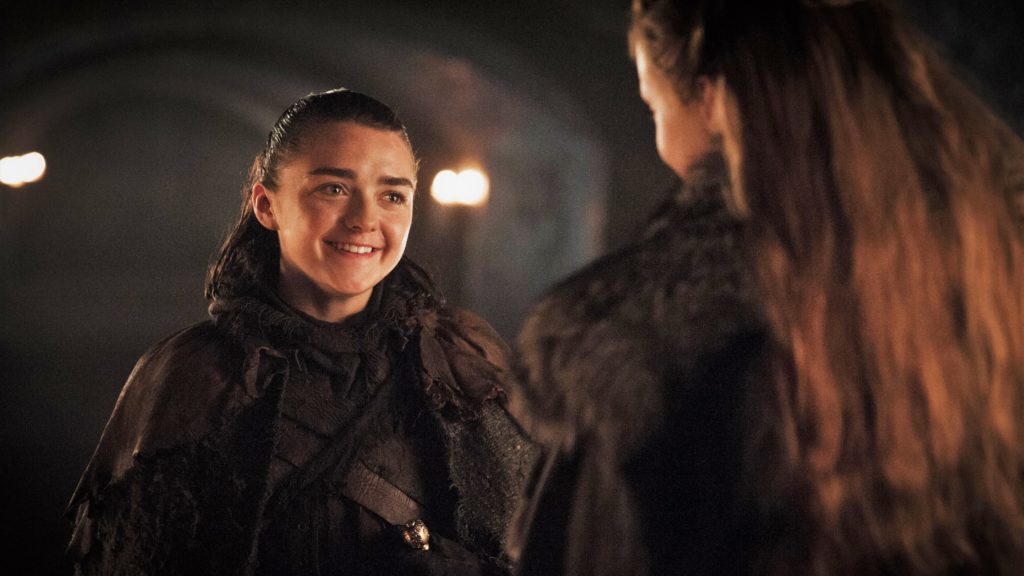
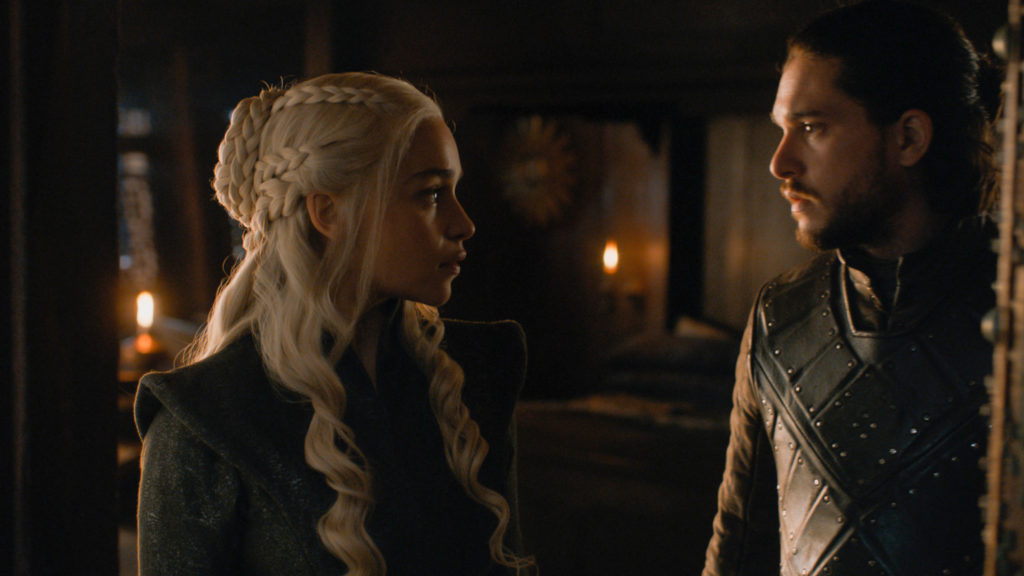
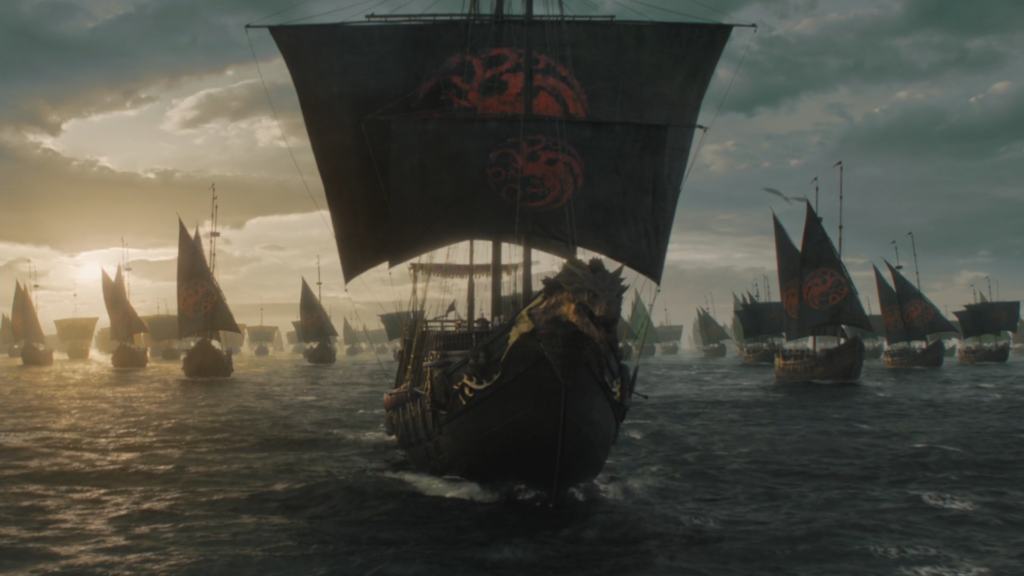
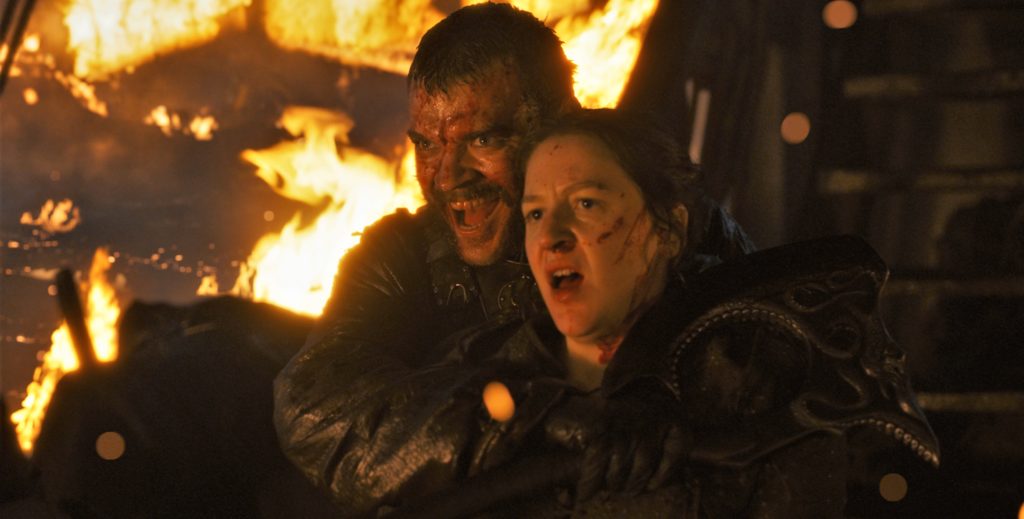
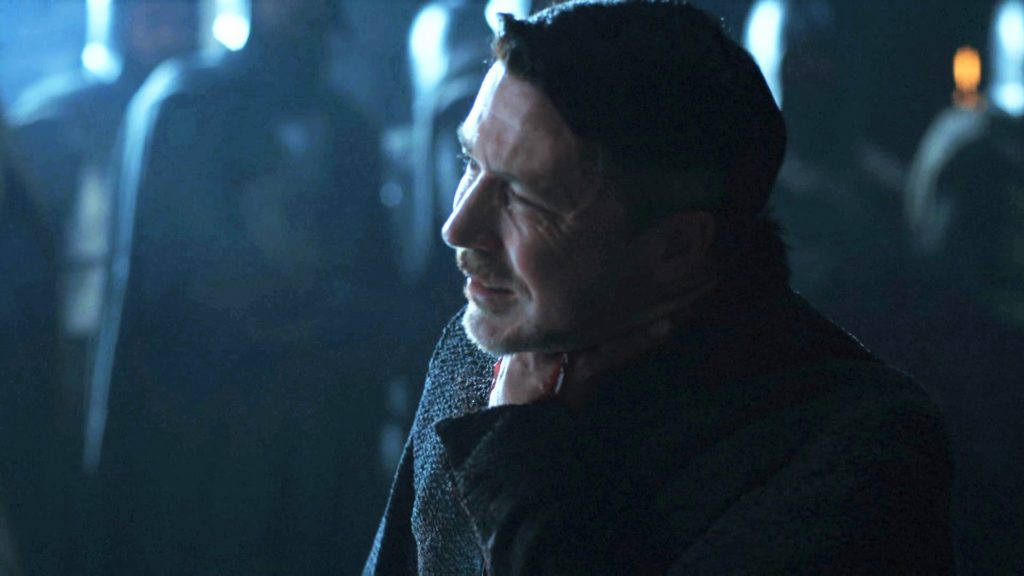
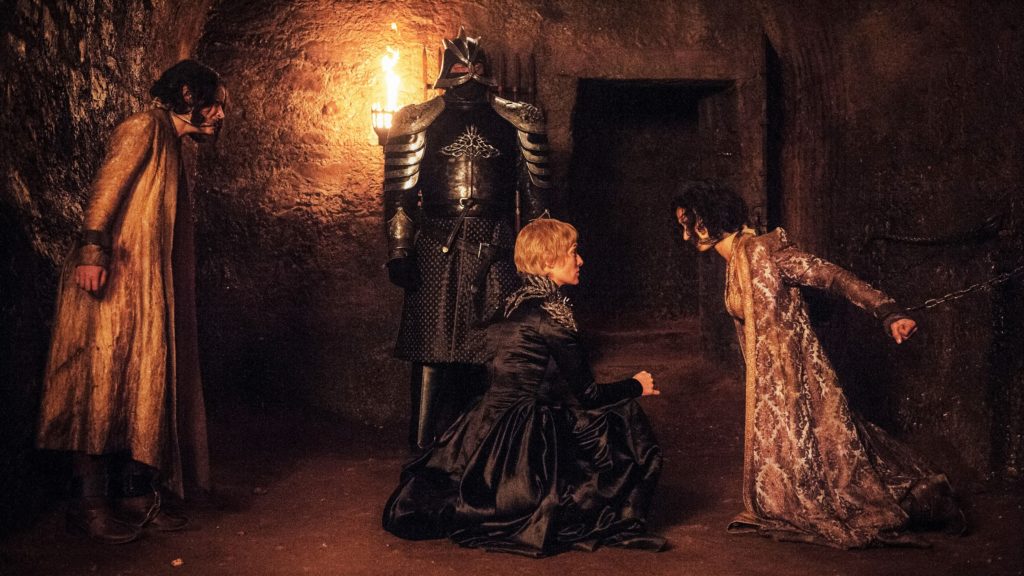
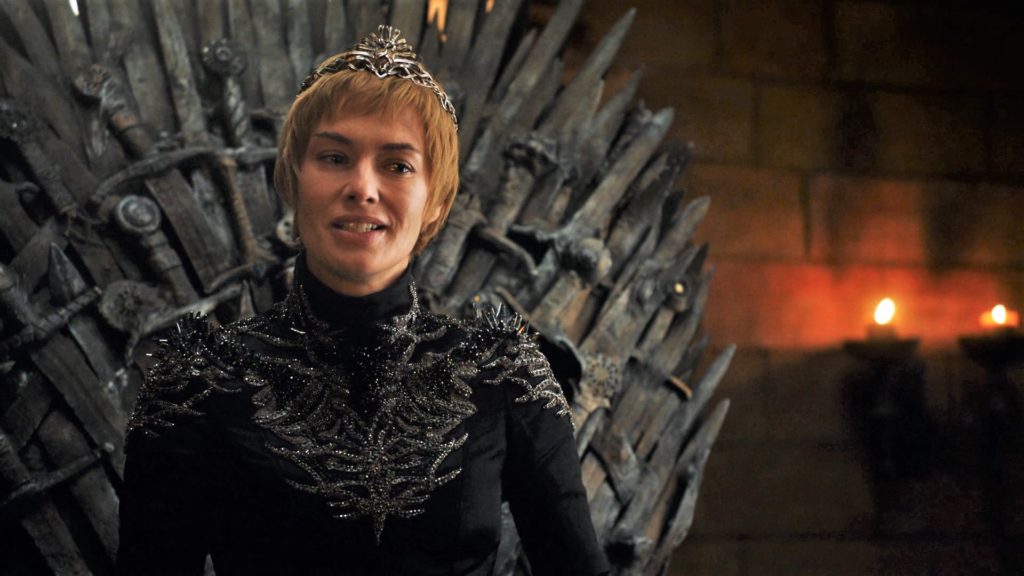
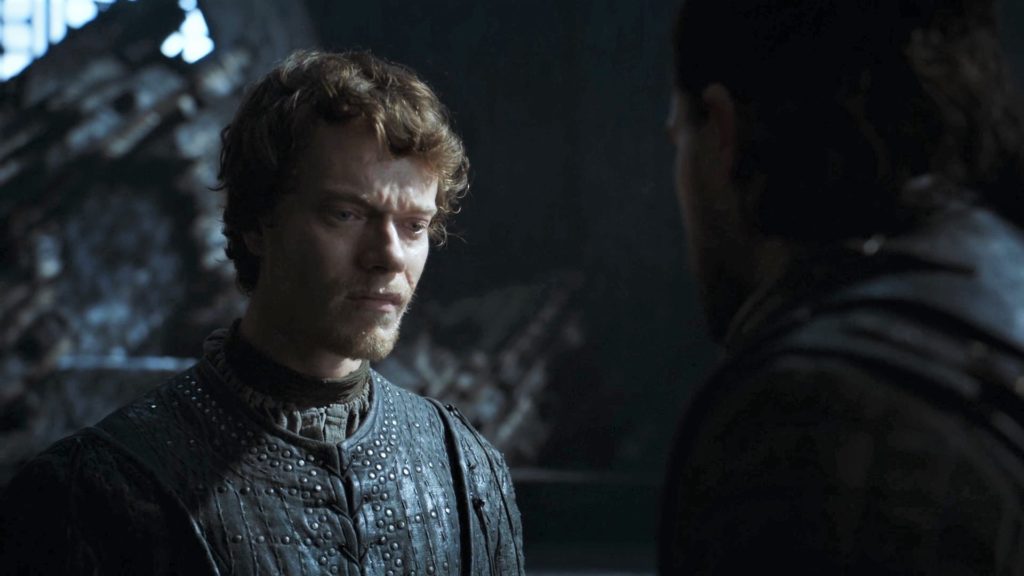
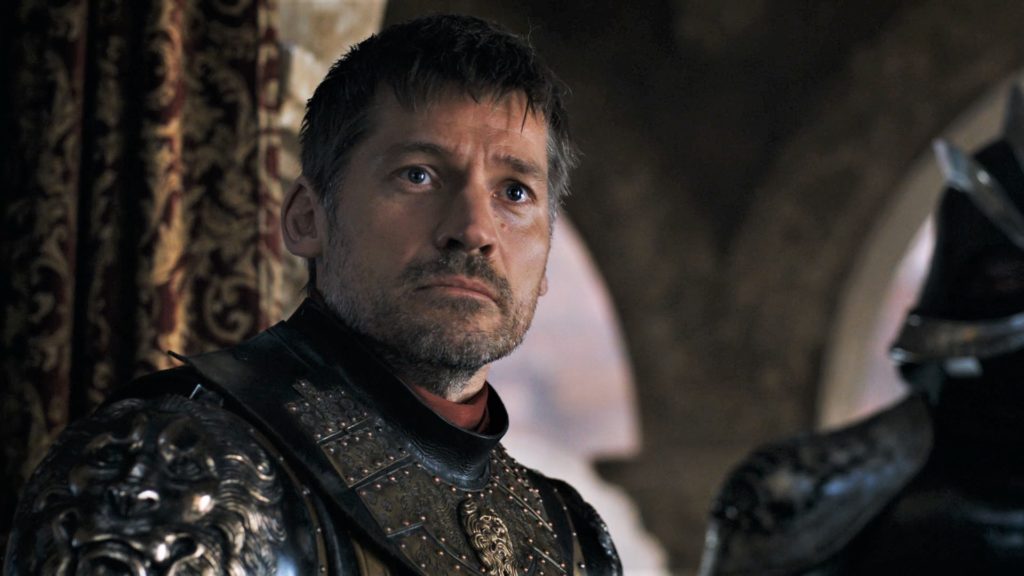
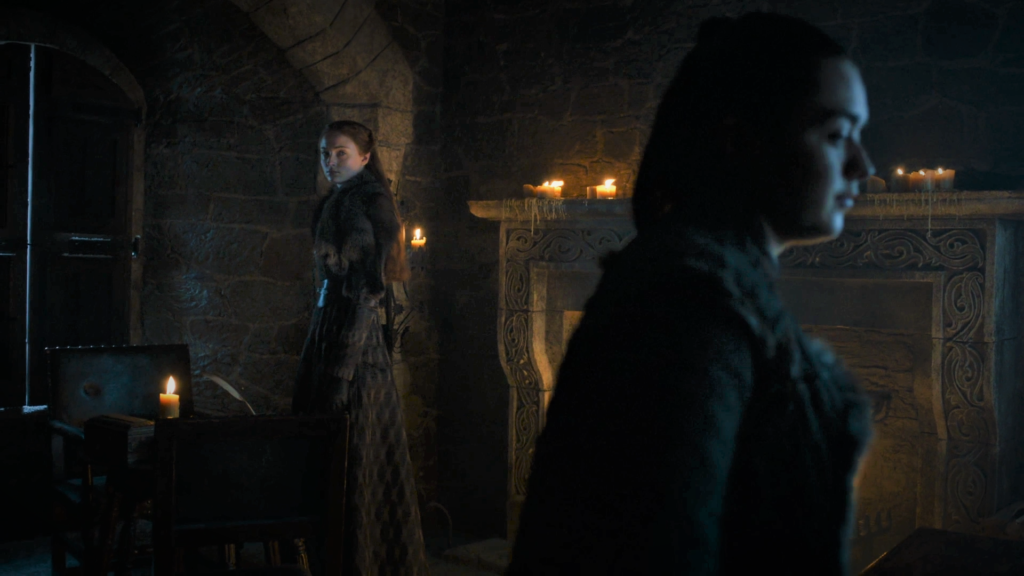
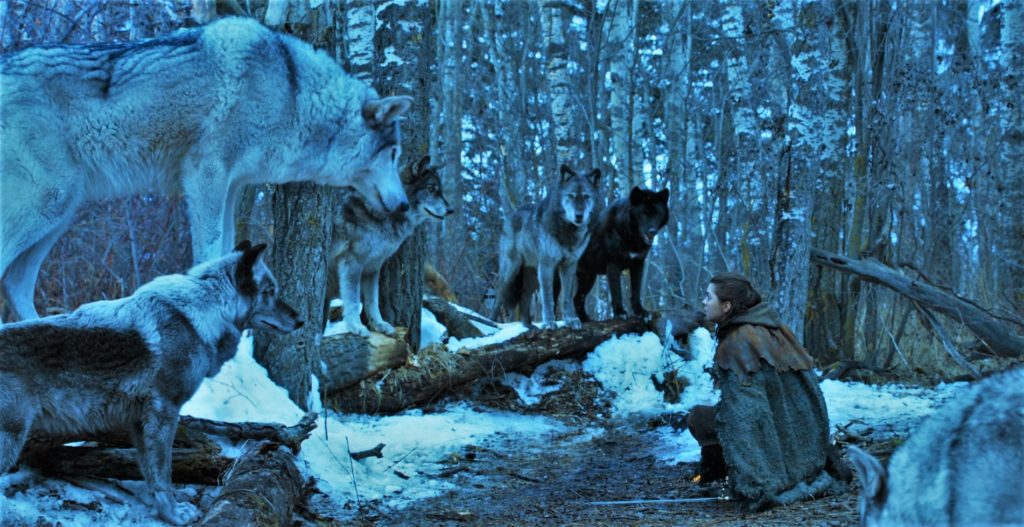
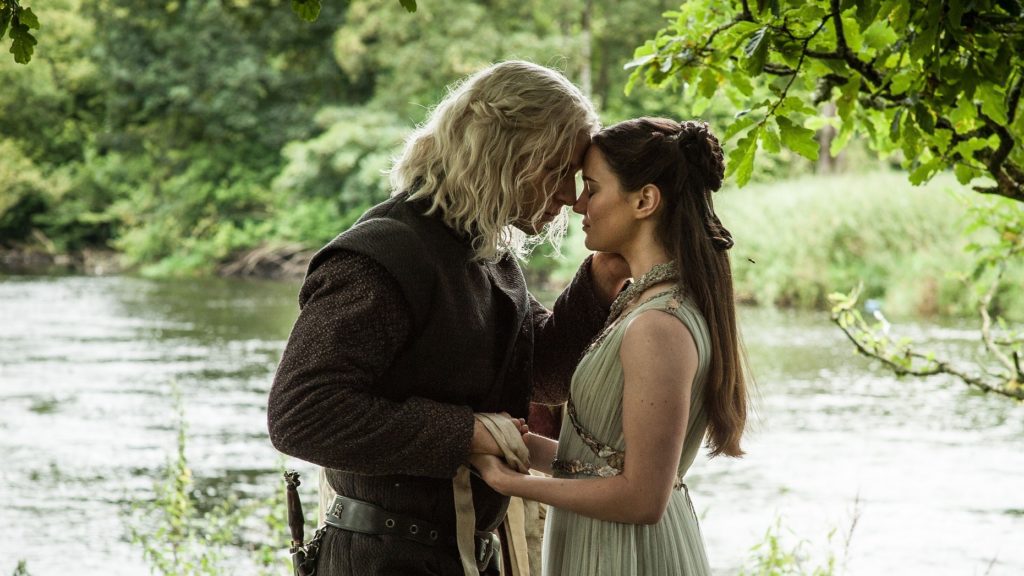

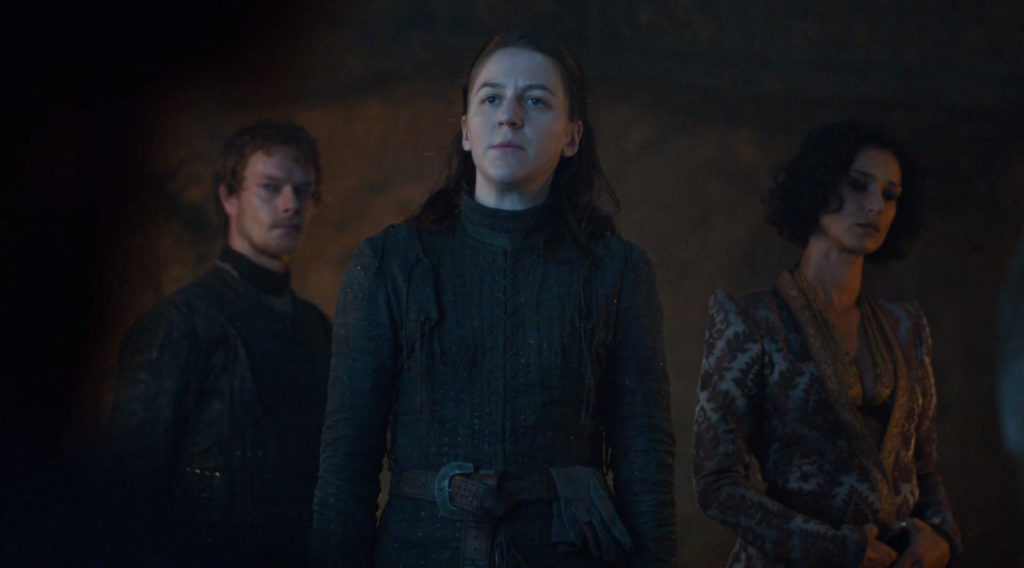
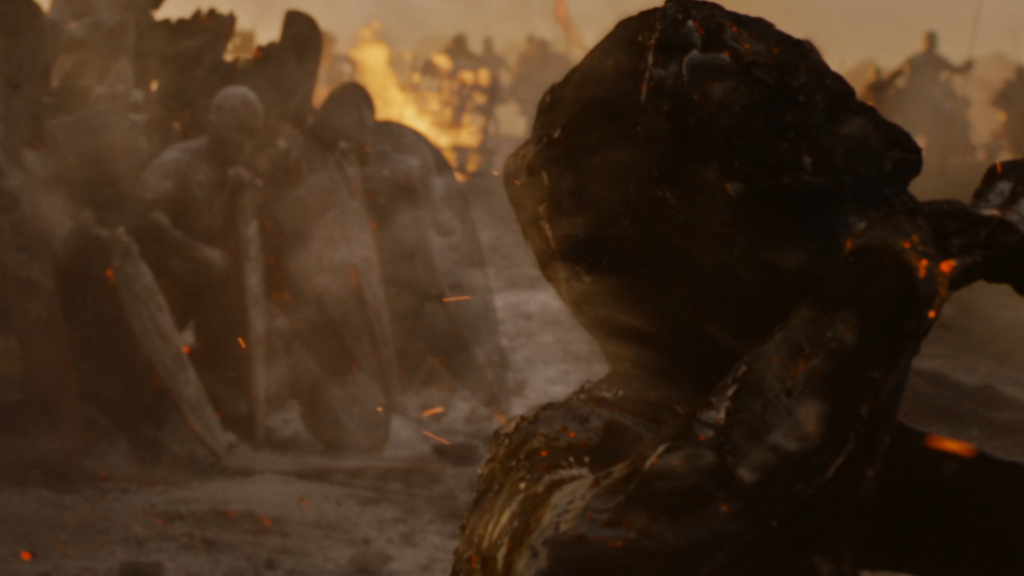
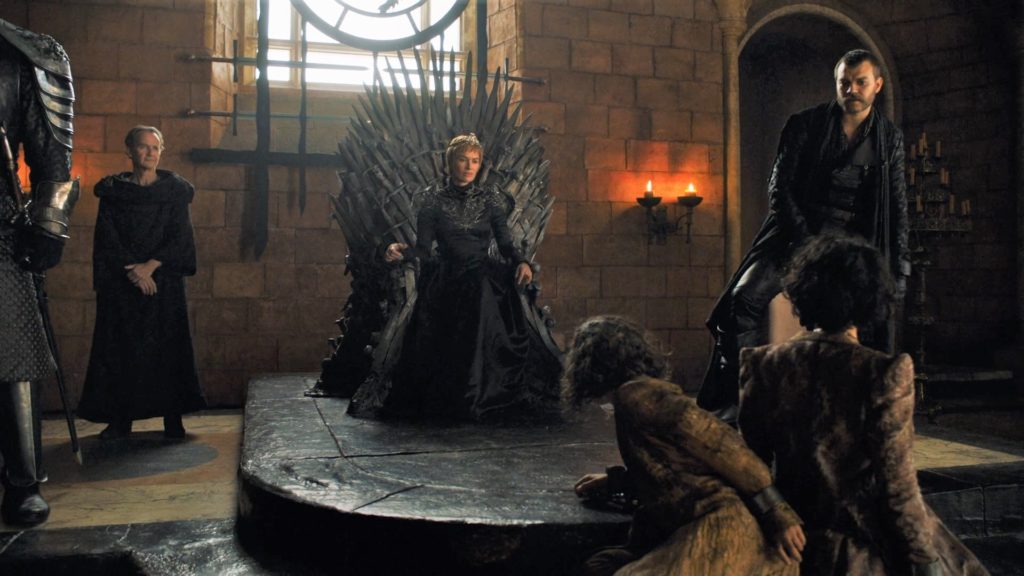
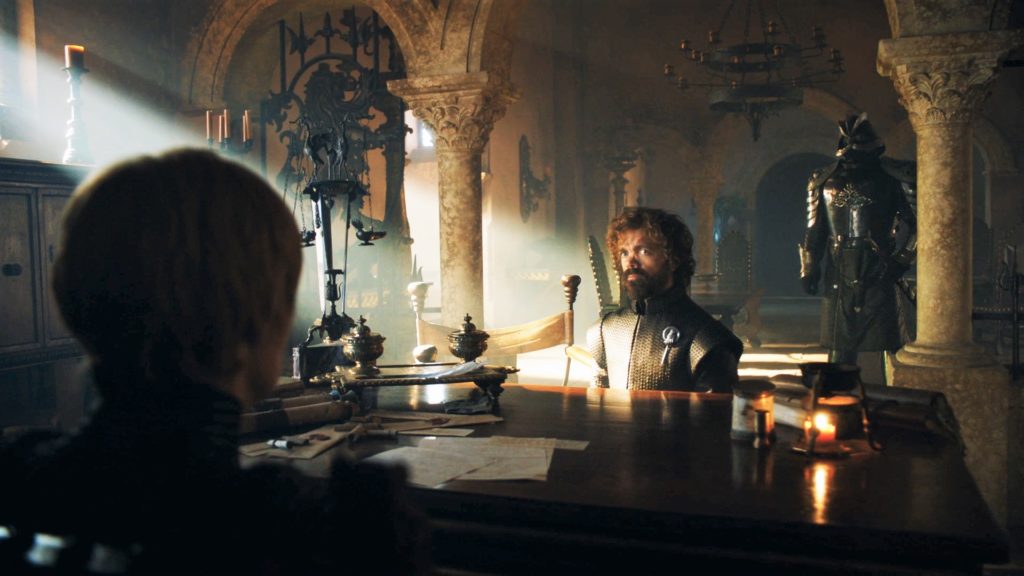
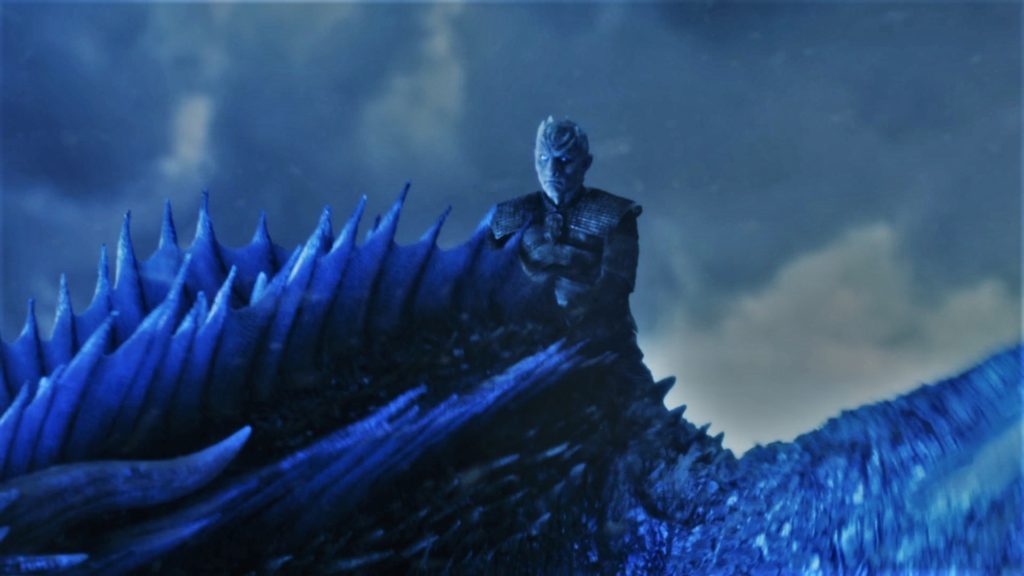
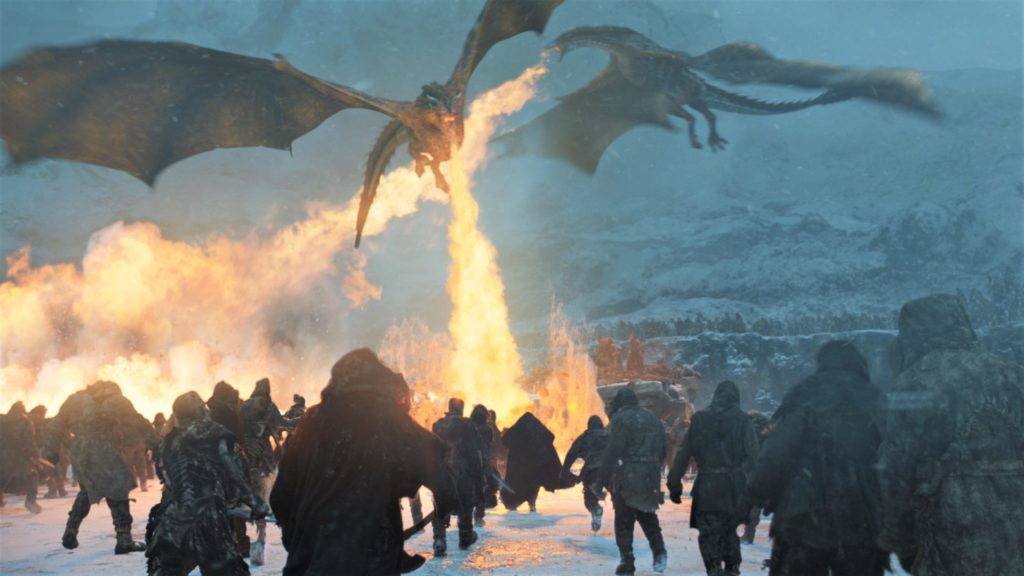
No comments:
Post a Comment